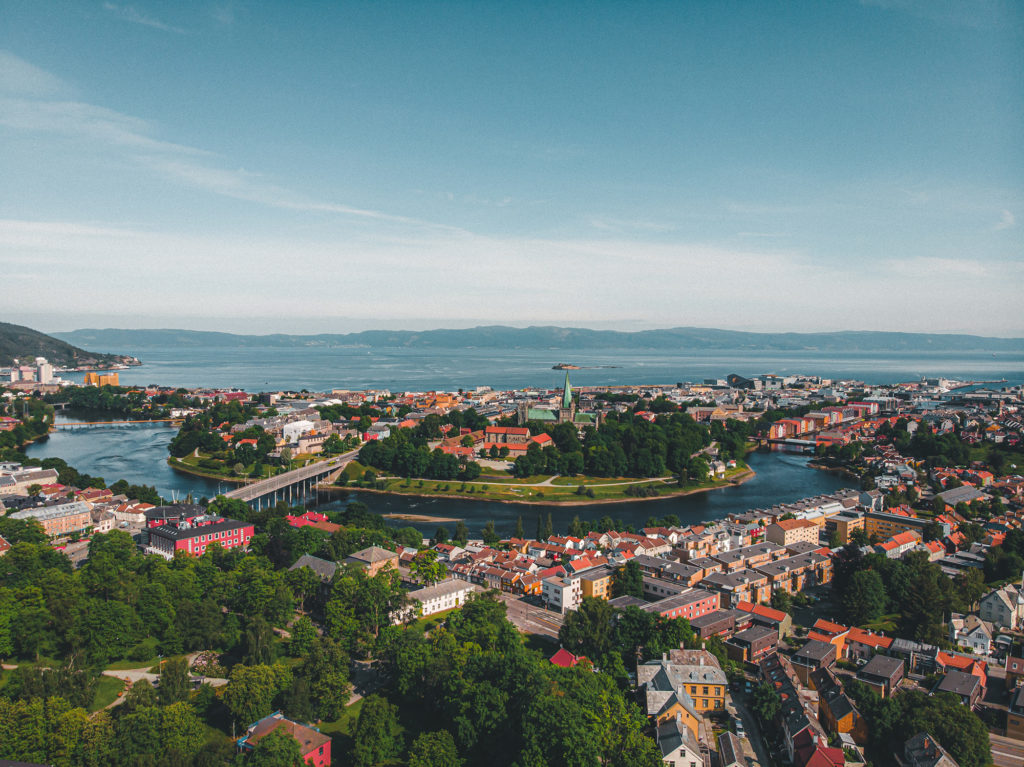There were several reasons why Andreas Myhre founded Britannia 153 years ago, not least his unwavering dream to operate his own fashionable hotel. But there was one particular clientele whose needs Myhre was focused on serving, and whose presence looms large over the hotel’s history: The Salmon Lords.
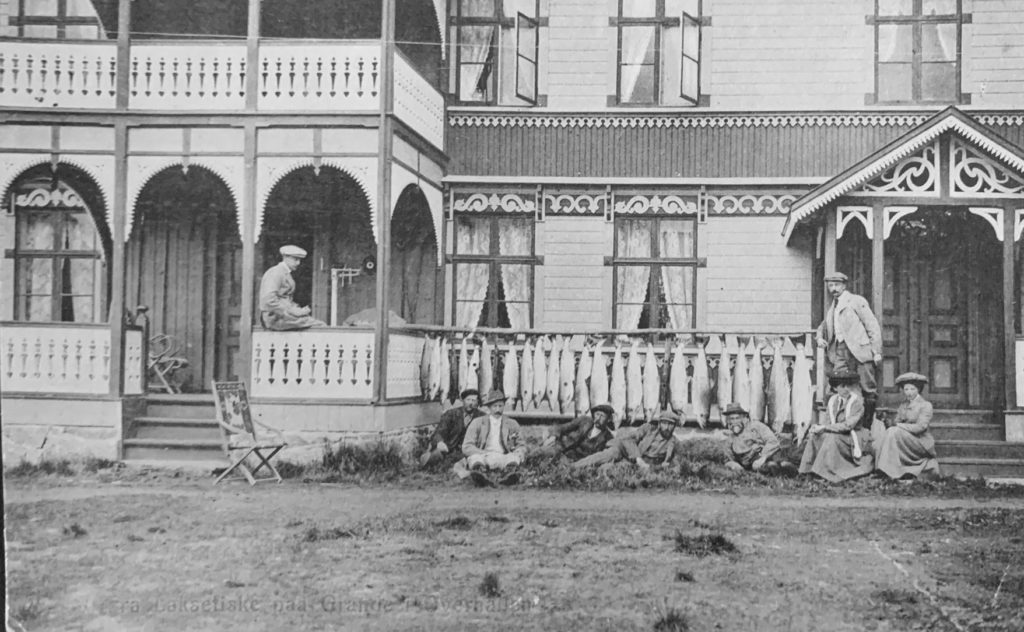
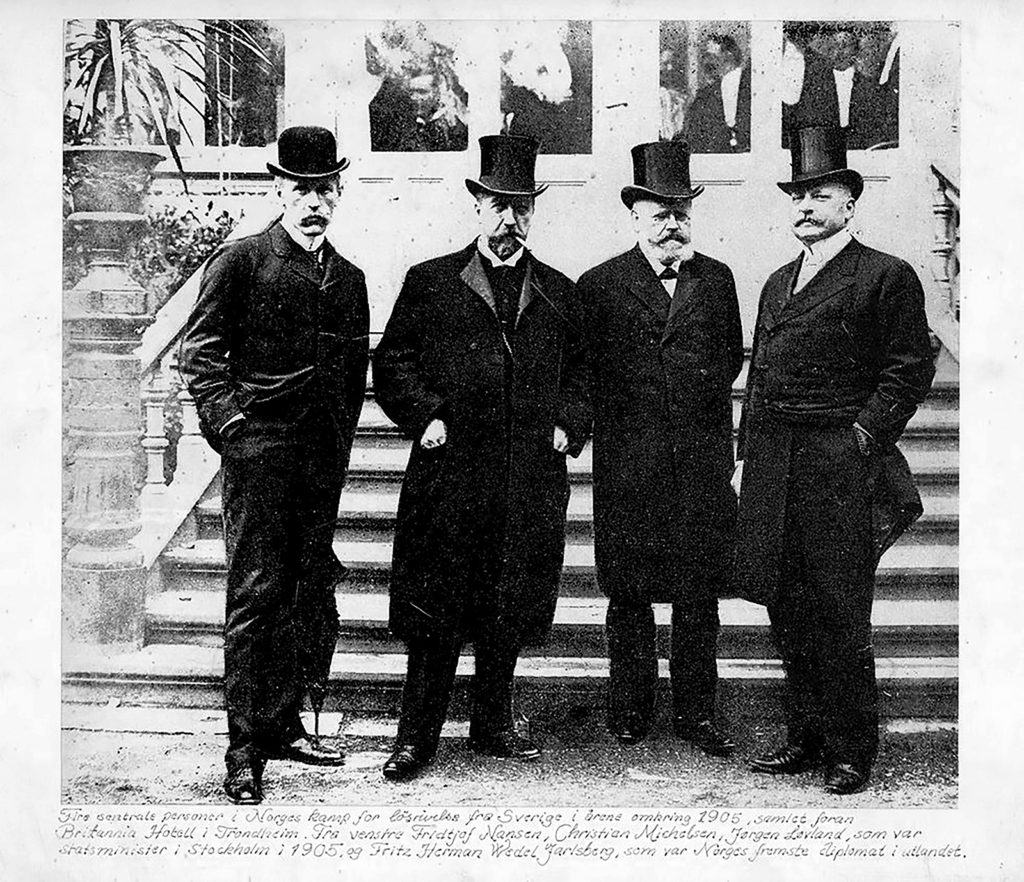
The history of Britannia Hotel
Read storyWhen Britannia Hotel opened its doors for the first time on 14 June 1870, considerable thought had already been invested in its name. Britannia was designed to appeal to travelling British ladies and gentlemen, who journeyed here to fish the river Nidelva and the other salmon-rich tributaries of the Trondheim Fjord.
‘We speak English and we serve tea at 5pm’ read a sign placed outside the entrance by the hotel’s founder, Andreas Myhre. A simple gesture recognising the burgeoning marketplace for foreign, sport-loving tourists, craving some home luxuries.
In this article we look back at Britannia’s history of fishing and examine some of the best ways to immerse yourself in this historic pastime today, in the region which is still considered the world’s best for salmon fishing.
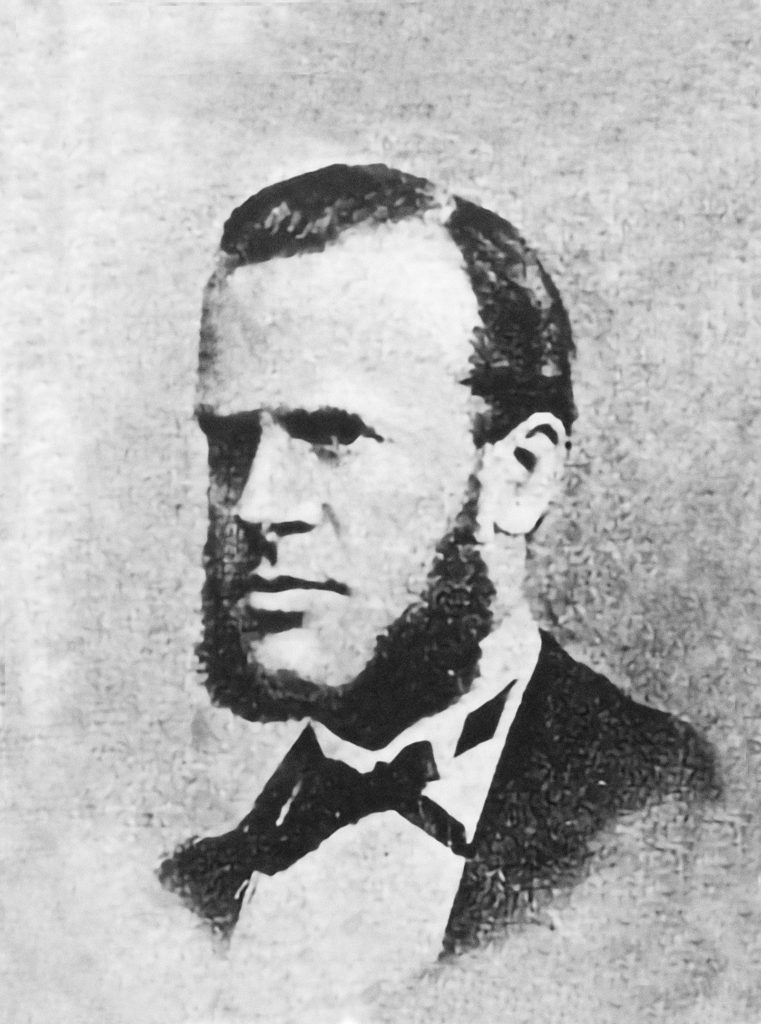
History on the Fly
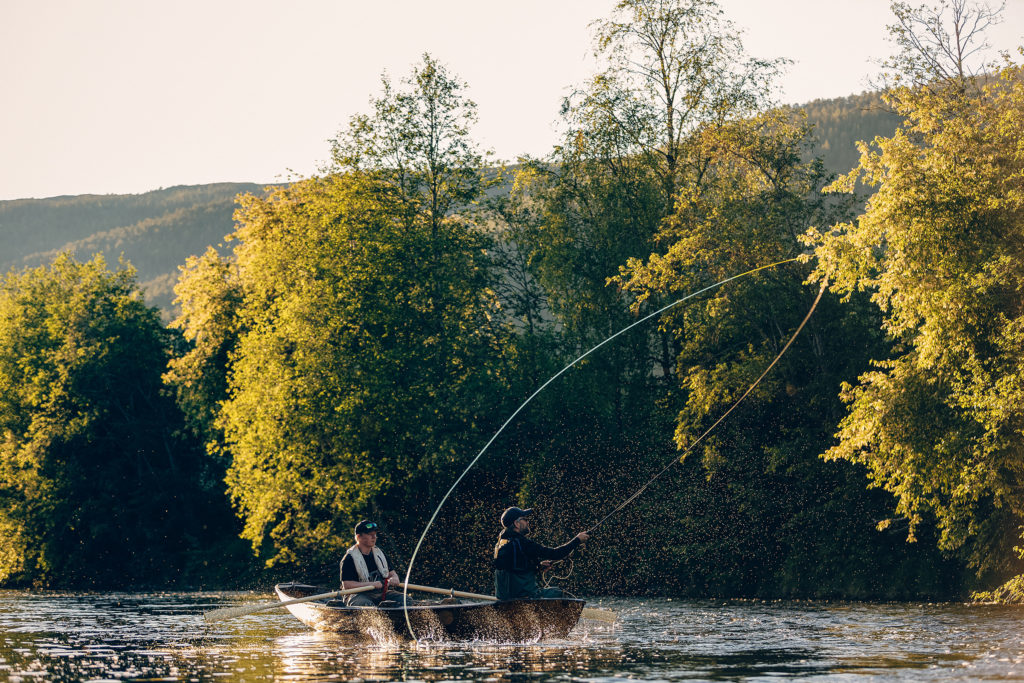
Fishing Packages at Britannia
Read MoreThe first person we have record of using fly techniques to fish for salmon, was Trondheim resident Johan Widerøe Thoning Owesen (1804–1881). His mother was in fact Irish and Owesen was sent to a boarding school in Londonderry. When he later inherited his parents’ fortune, he purchased Leren Estate (in 1828) on the east side of Nidelva and the falls known as Leirfossene, where he employed a Scottish estate manager called Mr Logen.
Whether it was his experiences in Ireland or Mr Logen's influence which inspired Owesen to take up salmon fishing, we cannot say for sure. But what we do know is he had visits from prominent British figures, who came here to fish, and who were influential in introducing new fishing techniques and marking the beginning of the Salmon Lords era.
So-called because their numbers would have included British aristocracy, the Salmon Lords also encompassed members of the middle classes who were passionate about their sport and about exploration. The number of travellers increased over the course of the century as the transport infrastructure improved, paving the way for establishments such as Britannia Hotel. However, in the early years of fly-fishing in Norway, a period of steamships and horse-drawn carriages, the journey would have been as challenging and tiresome as it was exotic and picturesque.
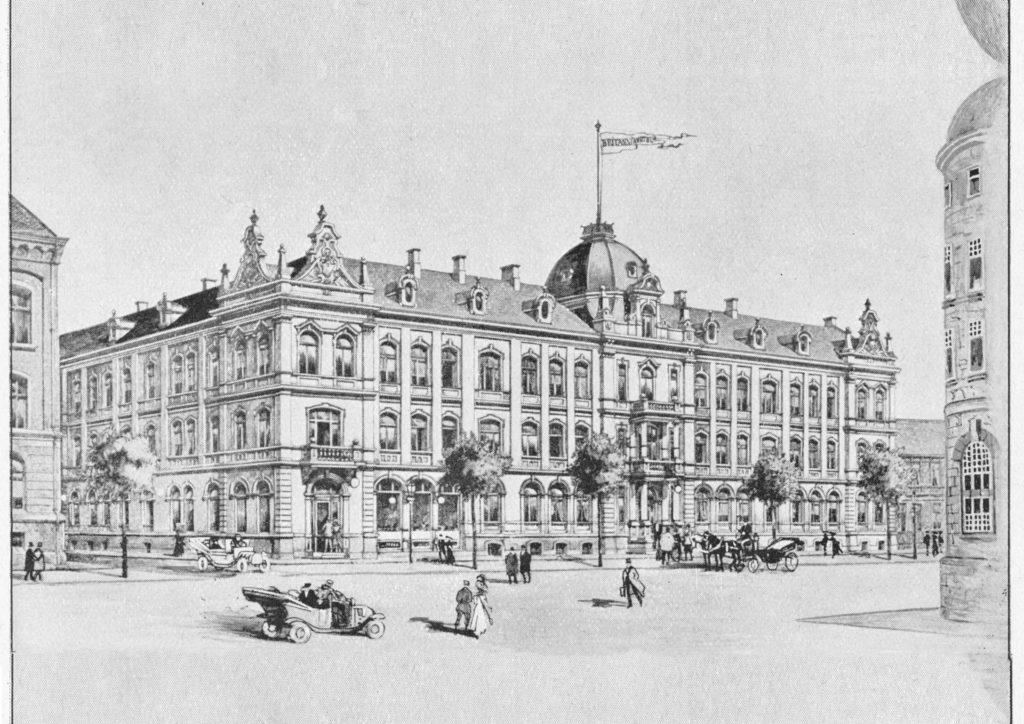
Travel writers, such William Bilton (1797-1870) wrote frequently about the hardships of the journey and strongly advised that only tourists of “common activity and hardihood” should attempt it. The desire for more comfortable accommodation at the end of the journey was acutely felt.
The angler will leave Trondheim with a heart beating with the anticipation of deeds yet undone; and, I think, need not fear that he will be disappointed.
William Bilton, Two Summers In Norway Volume I
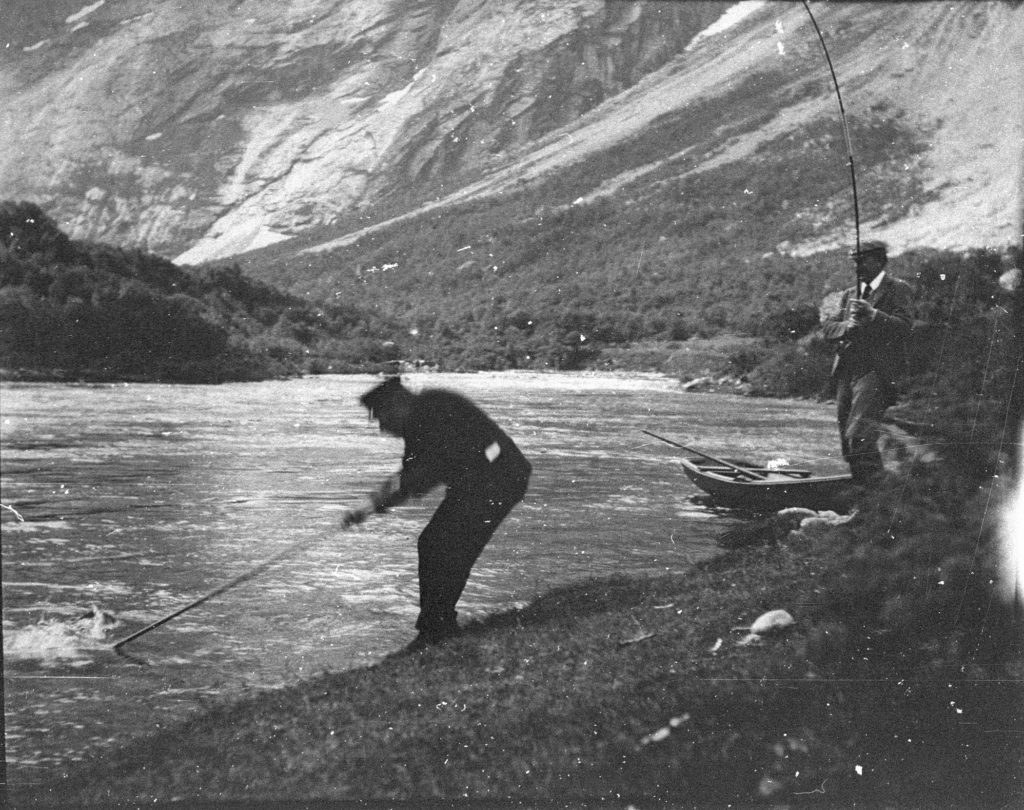
The Arrival of Britannia Hotel
By the time of Britannia Hotel’s establishment in 1870, Trøndelag’s rivers had gained a certain notoriety among sporting circles in the UK and the flow of anglers travelling to Norway had increased. But it was not just the abundance of fish that drew travellers to the region; the beautiful landscape, clean crisp air, long summer evenings, and never-ending sunsets were, and remain, a paradise for nature lovers.
The Salmon Lords and Ladies’ numbers were bolstered by enthusiasts who came to witness the salmon leaping at Leirfossen, the falls at the end of the river Nidelva which mark the end of the salmon’s journey.
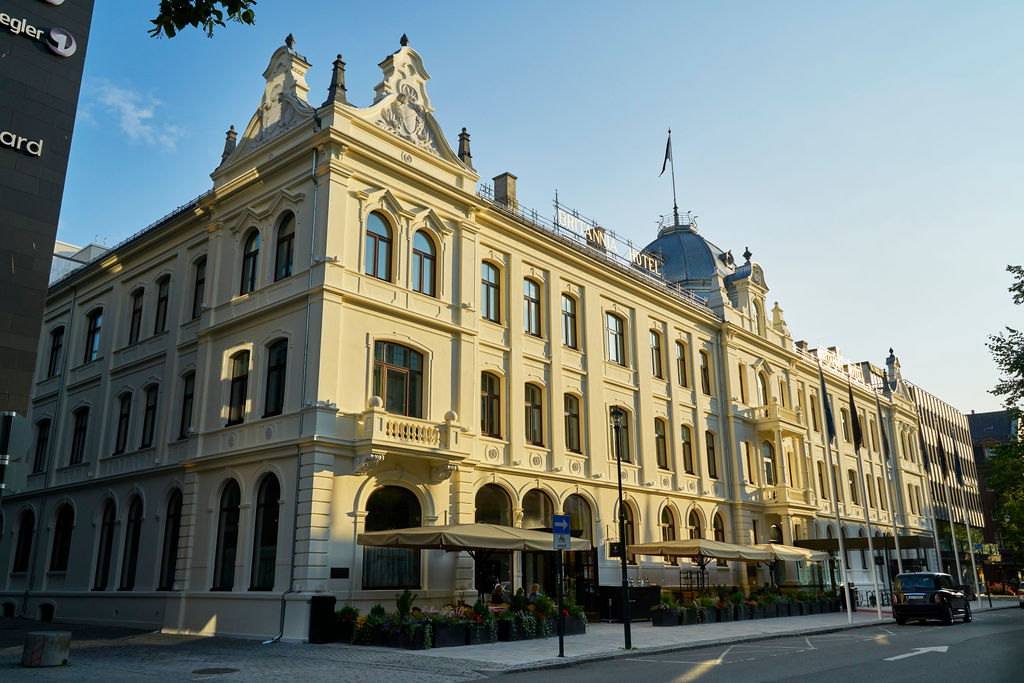
Lorded Legacy
The legacy of the Salmon Lords looms large and is embedded in the history of the hotel. To sit by the fireplace in Britannia Bar today - one of the oldest parts of the hotel - and listen to a colleague discuss their catch, with a whiskey in hand, is to replay a conversation which has barely altered once in the past century and half.
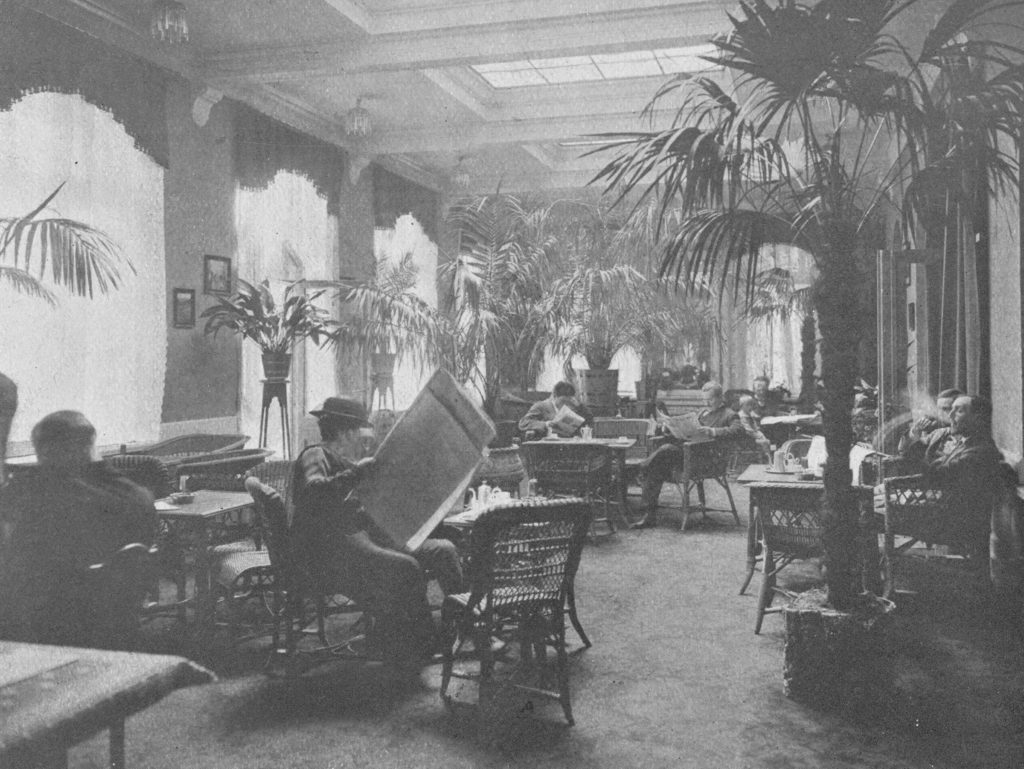
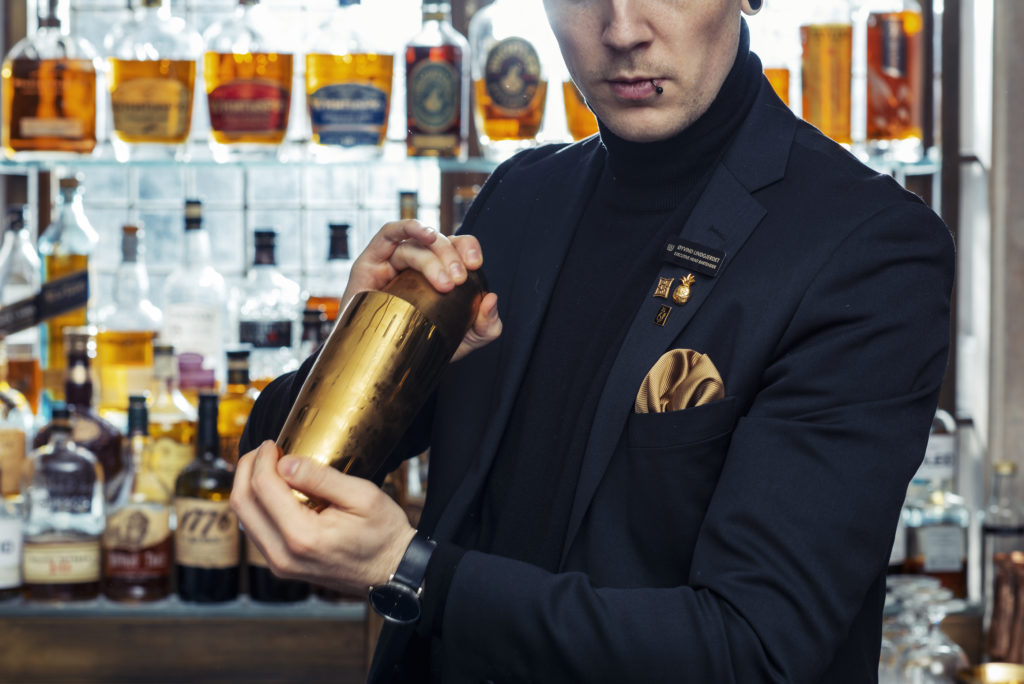
A Spirited History by Britannia Bar
Read storyThe era of the Salmon Lords wound to a close around the beginning of World War I, when priorities changed and the political landscape across Europe became unstable. However, the influence of these angling enthusiasts remained, not least because so many had established estates on their favourite rivers.
Take a trip around the county today and you will find hundreds of nods to the bygone era; farms with English names, black and white photos of anglers with their catch, bookshelves stuffed with old English novels left behind by tourists, and even gravestones marking the lords and ladies’ presence (and demise).
The region is certainly more accessible than it once was, and we are proud to say that accommodation has improved somewhat over the years. But the challenge of using flies to fish for salmon is as precise as it ever was. To explore the region’s waterways is to step back in time and to fish for salmon here, is to fish like a lord.
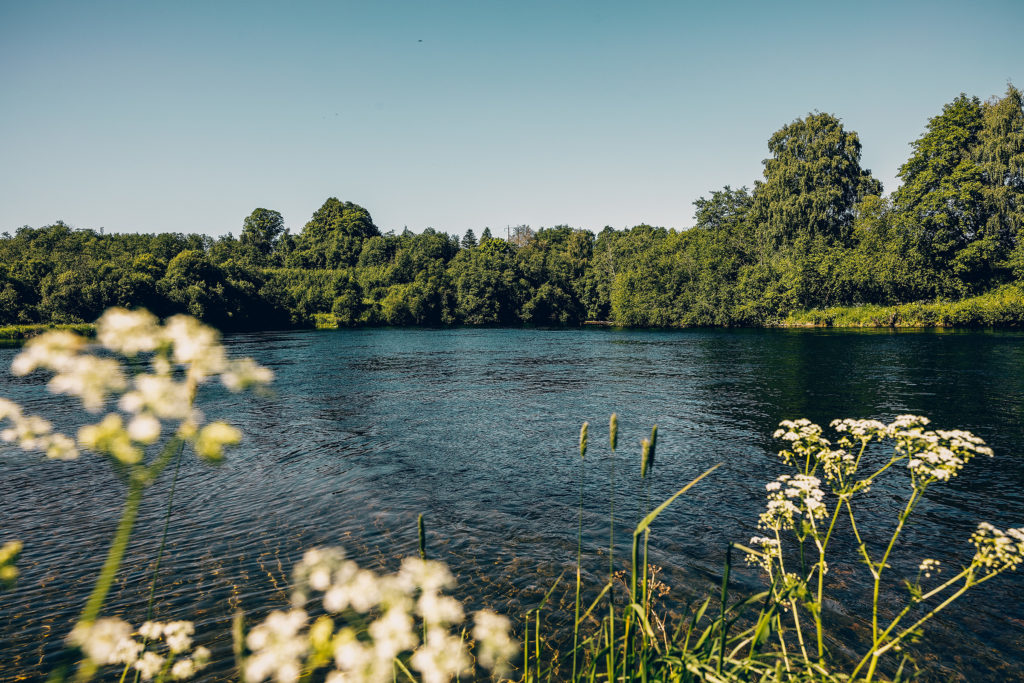
Nidelven
Pictured here is something quite incredible. An idyllic river scene, with barely a cloud in the sky, and next to nothing in the colour scheme other than greens and blues.
But the tranquillity of this image belies its reality, for this is the river Nidelven, which runs right through the heart of Trondheim, Norway’s third biggest city. It is the river mentioned in the history books, one of the waterways which first enticed anglers to Norway and where fly-fishing was first practiced. Yet today it is one of the city’s best kept secrets, a place where time forgot.
Exclusively for staying guests at Britannia, we have secured the right to fish a stretch of the river Nidelven, just 10 minutes away from the hotel. You can reserve up to five passes from Concierge during the salmon fishing season (1st June to 31st August), each granting the recipient 24-hours unlimited fishing. Furthermore, top-notch equipment hire comes as part of the package, including waders, flies, and a choice of reel rods or fly-fishing rods. And we will provide you and your party with a tasty picnic hamper, full of all the delicacies you have come to expect from Britannia’s eminent kitchen, to keep you nourished for the fishing ahead.
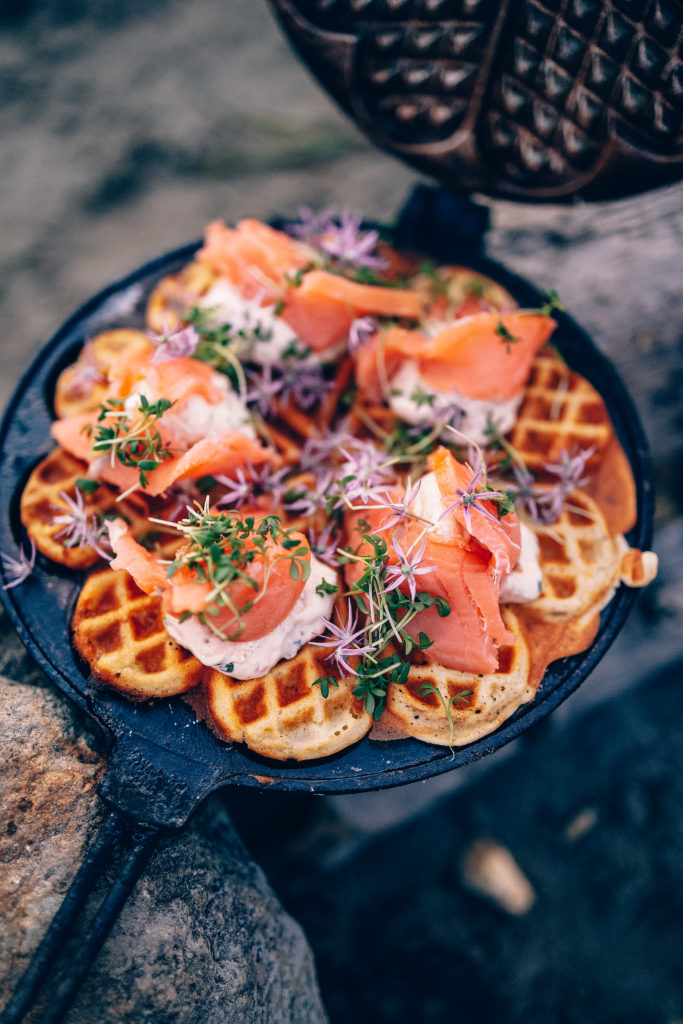
The package also includes two-way transportation and an introduction to the area on arrival. On the Nidelven you can ‘catch and release’ or keep your fish up to the local quota. Once you have caught your quota for the day, you must retire: a luxury problem, while you sit back in blissful nature on the river where it all began!
24-hour fishing cards on Nidelven are available to all staying guests, from 1st June to 31st August every year (subject to availability). To enquire about availability on your preferred date please contact concierge@britannia.no.

Galua
Gaula is a world-famous fishing destination. The river has a steady and plentiful supply of salmon throughout the season.
The Gaula River is particularly well known for the size of its salmon and for the quantity landed; around 8,000 salmon over a season! The average weight is around 4.5 kilos, though we often see guests bringing in much larger catches. If you are serious about your sport and want to fly fish in one of the most rewarding stretches in the world, then read on.
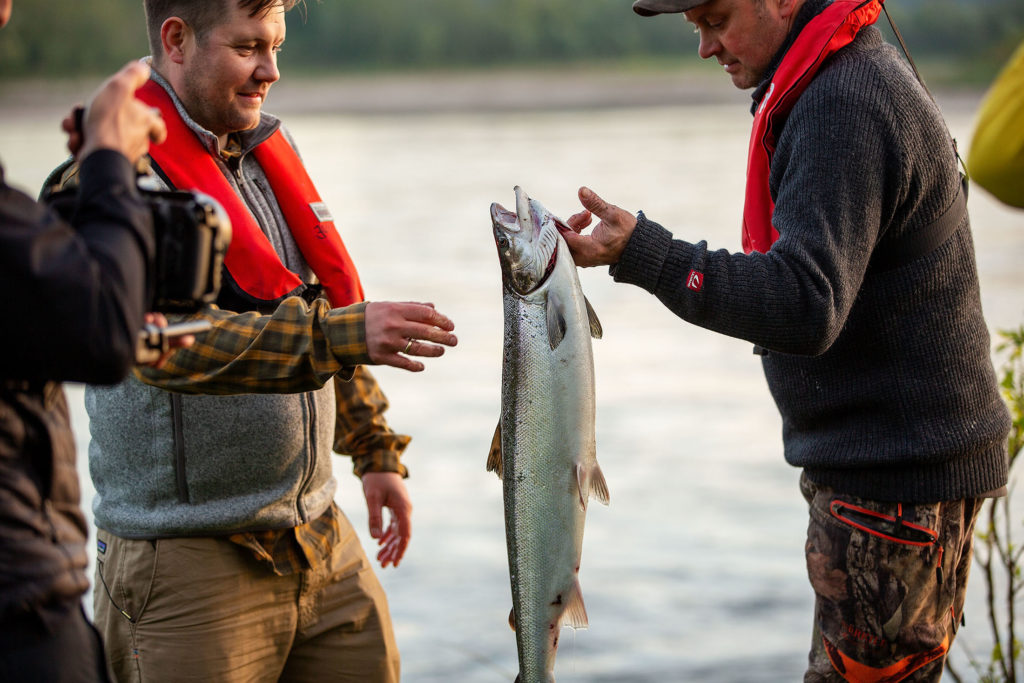
Britannia has secured exclusive fishing rights for several weeks at one of the river’s most bountiful pools. We oganise five-star fishing trips befitting of the river’s status, including overnight accommodation on the riverbank (with luxury touches, such as our own Egyptian cotton linen), full-board catering from one of our award-winning chefs, transportation, high-end equipment and professional coaching. Visitors can bookend their trip to Gaula with a stay at Britannia Hotel in Trondheim, ensuring they have the perfect setting to celebrate their catch.
Contact Britannia Hotel's Concierge to enquire about availability and pricing, concierge@britannia.no.

Stjørdal and Orkla
There are several other world-famous rivers within an hour’s drive of Britannia. The hotel maintains close relations with many of the bests lodges and can organise for daytrip or onwards travel.
Stjørdal River and its tributaries offer 85km of high quality fishing, and have been compared to the famous River Tweed in Scotland. An area of outstanding natural beauty, with many tranquil and remote pools to be discovered. It is little wonder that this corner of the world has been reeling in angling enthusiasts for the best part of 170 years.
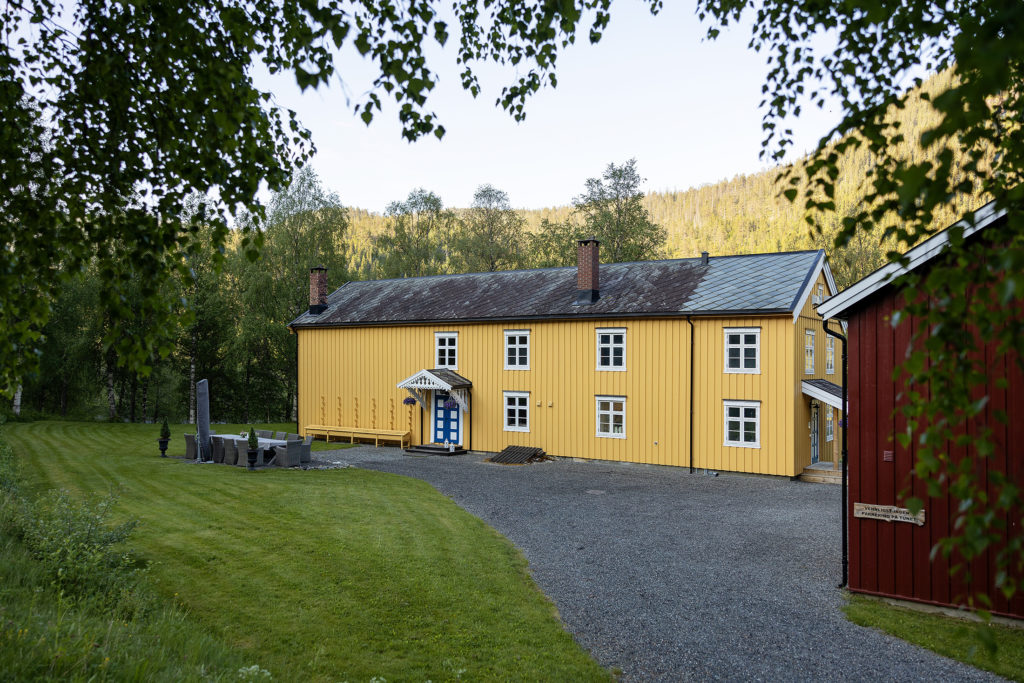
The British anglers, their families, and their servants used to take up lodging at local farmsteads like Renå for the whole season (established by the English hunter and salmon fisherman Sir Henry Pottinger, who travelled up the Stjørdal River 1858, enticed by rumours of marvellous salmon in the upper reaches).
It could get rather cramped and so, in 1870, the same year as Britannia Hotel was opening in Trondheim, the new leaseholder of Renå, Colonel Charles Wingfield (of Onslow House in Shropshire) completed the construction of a house on the farm. The ‘English Building’, as it was known then and now, provided ample accommodated for the Colonel’s family and guests. Today it provides accommodation for travellers from around the world – contact concierge to find out about availability this summer.
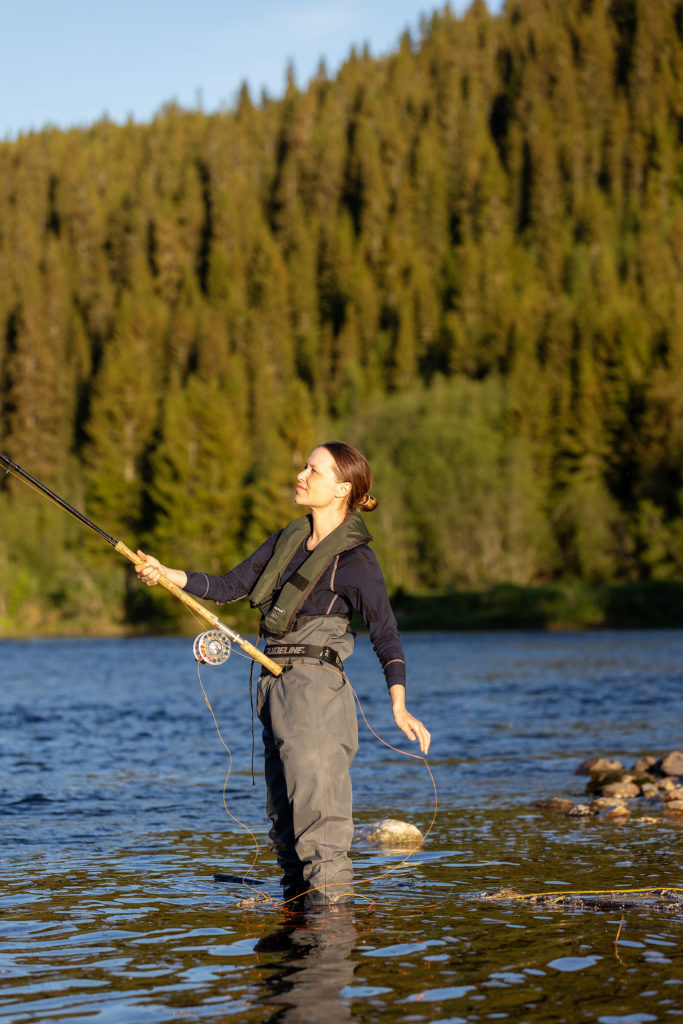
The legacy of ‘English’ fishing at Renå lives on, not least in the trophies which adorn the walls of the historic English House, the names of the various fishing pools (The Neck of Hell, Purgatory, Ladies’ Pool, Barton’s Pool etc.) and the whip of the fly in the setting sun along the Stjørdal river.
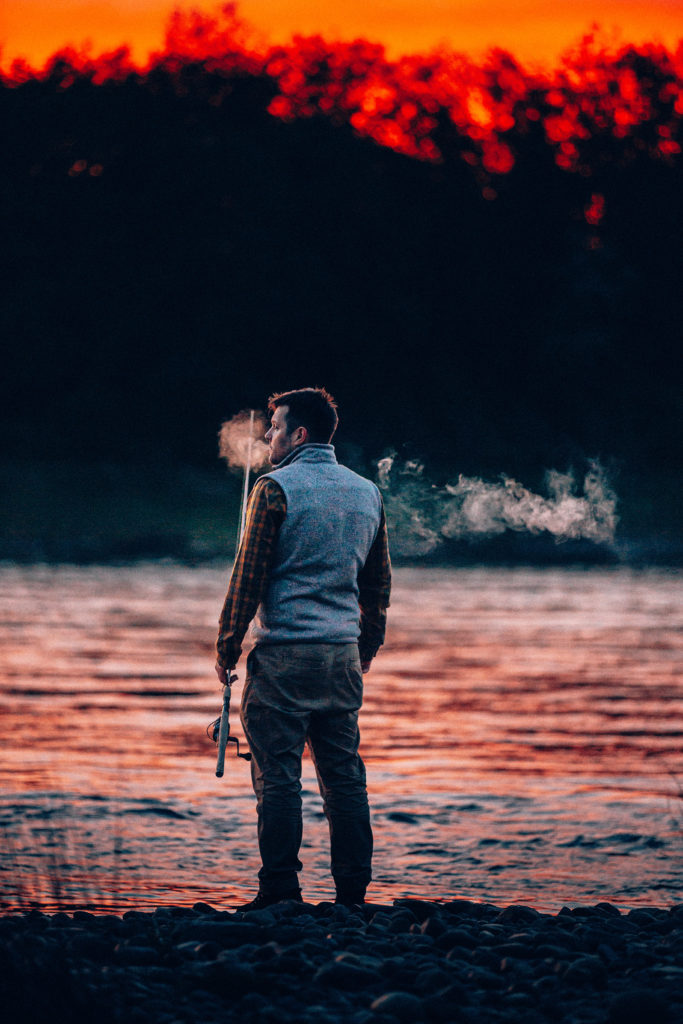
Standing alone by the river, it is completely quiet and you only hear the river. The power of the river and the sound of the birds, it makes me completely disconnect and recharge my batteries, so I can perform at work. If I make a catch, gutting the salmon afterwards, with a little aquavit and a little sashimi with the boys – it doesn’t get any better than that!
Christopher Davidsen, Former Executive Head Chef Speilsalen.

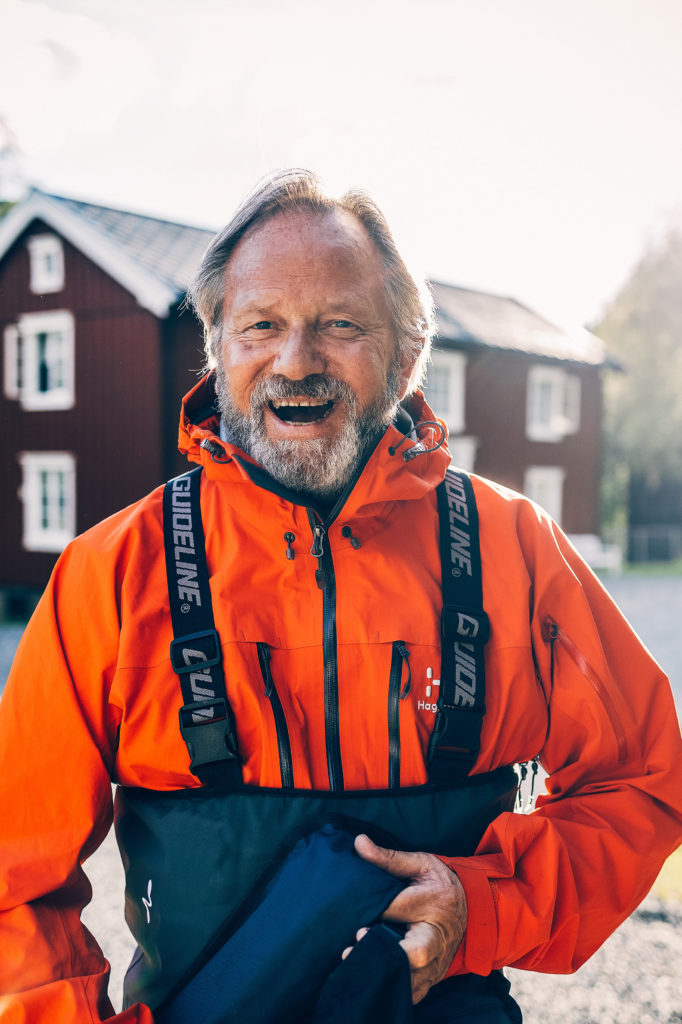
Meet Britannia's Head Concierge, Sten Stensrud
Read storyOther types of fishing
There are of course many other spots for fly fishing in Trøndelag and bountiful opportunities for other types of fishing in the region. If you would like to know more about any of the rivers mentioned here, or any of the other great rivers (such as the Orkla), please do not hesitate to get in touch with our Concierge.
The salmon fishing season runs from 1st June until 31st August. Outside of these months we recommend fishing experiences in the fjord with Amanda from Trondheim by Boat. She is famous for her historic tours aboard her traditional Åfjord boat, but she also offers fjord fishing with a modern trawler, including guide and all equipment.
Britannia is also partnered with Crazy Coyote, who can organise deep sea fishing, with modern equipment and serving on board. You are guaranteed to get fish when you visit the deep waters outside of Trondheim!
Trondheim is a city which is surrounded by waterways: the deep, wide fjord; the meandering river which encircles the old town; the canals dotted with picturesque old wooden boats; the lakes in the hillside above; the wild ocean coast outside. These are the waterways which first brought people to these shores, which provide us with ingredients for our cuisine today, and which can provide you with an adventure of a lifetime.
